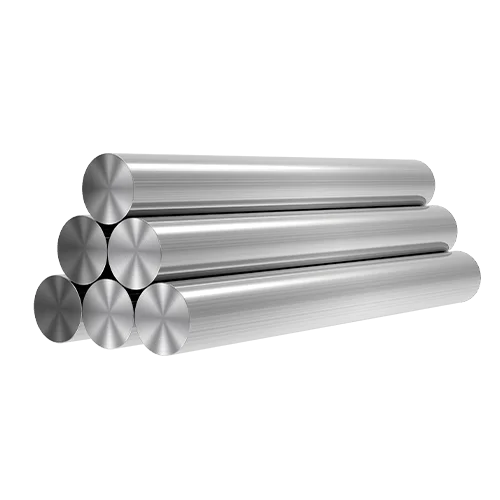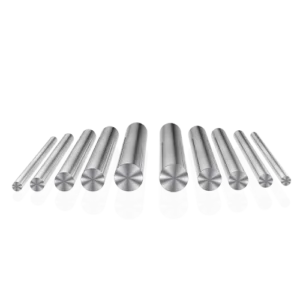Introduction
In the world of manufacturing, materials play a crucial role in determining the quality, durability, and performance of the final products. One material that stands out for its exceptional properties is 4140 steel. This versatile alloy is widely used across various industries due to its strength, toughness, and wear resistance. In this article, we will delve into the specifics of what is 4140 steel, its properties, applications, and why it is essential in manufacturing.
Understanding 4140 Steel

What is 4140 Steel?
4140 steel is a low-alloy steel containing chromium, molybdenum, and manganese. This composition gives it a unique combination of hardness, tensile strength, and toughness, making it ideal for various industrial applications. The steel’s versatility stems from its ability to be heat treated, enhancing its mechanical properties for specific uses.
Chemical Composition of 4140 Steel
To understand what is 4140 steel more comprehensively, let’s look at its chemical composition. The table below outlines the typical elements found in 4140 steel and their respective percentages.
| Element | Percentage |
|---|---|
| Carbon (C) | 0.38 – 0.43% |
| Manganese (Mn) | 0.75 – 1.00% |
| Phosphorus (P) | 0.035% max |
| Sulfur (S) | 0.040% max |
| Silicon (Si) | 0.15 – 0.35% |
| Chromium (Cr) | 0.80 – 1.10% |
| Molybdenum (Mo) | 0.15 – 0.25% |
The combination of these elements gives 4140 steel its unique properties, including high hardenability and good fatigue strength.
Key Properties of 4140 Steel
Understanding the key properties of 4140 steel helps in appreciating why it is essential in manufacturing. Here are some notable characteristics:
- High Tensile Strength: 4140 steel offers excellent tensile strength, making it suitable for components subjected to high stress and load.
- Good Fatigue Strength: The steel’s ability to withstand cyclic loading without failure makes it ideal for applications involving repeated stress.
- Wear Resistance: 4140 steel’s hardness contributes to its wear resistance, ensuring longevity and durability in abrasive environments.
- Machinability: Despite its strength, 4140 steel can be machined and fabricated with relative ease, making it a preferred choice in manufacturing.
- Hardenability: The alloy responds well to heat treatment, allowing manufacturers to tailor its properties to specific requirements.
Applications of 4140 Steel
Now that we have a clear understanding of what is 4140 steel and its properties, let’s explore its applications across various industries.
Automotive Industry
4140 steel is extensively used in the automotive sector for manufacturing crankshafts, gears, axles, and other critical components. Its strength and fatigue resistance ensure reliability and performance in demanding conditions.
Aerospace Industry
In aerospace applications, 4140 steel is used for making aircraft landing gear, engine parts, and structural components. The material’s high tensile strength and toughness are essential for withstanding extreme forces and temperatures.
Oil and Gas Industry
The oil and gas industry relies on 4140 steel for drilling equipment, pipeline components, and valve parts. Its wear resistance and ability to endure harsh environments make it a suitable choice for these applications.
Machinery and Tooling
4140 steel is commonly used in the manufacturing of machinery and tools, such as dies, molds, and cutting tools. Its machinability and hardenability allow for precise and durable tools.
Construction Industry
In construction, 4140 steel is used for structural components, reinforcing bars, and fasteners. The steel’s strength and toughness contribute to the safety and integrity of buildings and infrastructure.
Heat Treatment of 4140 Steel

One of the key aspects of 4140 steel is its ability to be heat treated to enhance its properties. Here are some common heat treatment processes applied to 4140 steel:
- Annealing: This process involves heating the steel to a specific temperature and then slowly cooling it. Annealing reduces hardness, improves machinability, and relieves internal stresses.
- Normalizing: Normalizing involves heating the steel above its critical temperature and then air cooling. This process refines the grain structure, enhancing strength and toughness.
- Quenching and Tempering: Quenching involves rapidly cooling the steel from a high temperature to lock in a hard microstructure. Tempering follows quenching and involves reheating to a lower temperature to achieve a balance between hardness and toughness.
- Case Hardening: This process involves hardening the surface layer of the steel while maintaining a tough core. It is achieved through methods like carburizing and nitriding.
Comparison with Other Alloy Steels
To further understand what is 4140 steel, it’s useful to compare it with other alloy steels. The table below highlights the differences between 4140 steel and two other common alloy steels: 4130 and 4340.
| Property | 4140 Steel | 4130 Steel | 4340 Steel |
|---|---|---|---|
| Carbon Content | 0.38 – 0.43% | 0.28 – 0.33% | 0.38 – 0.43% |
| Chromium Content | 0.80 – 1.10% | 0.80 – 1.10% | 0.70 – 0.90% |
| Molybdenum Content | 0.15 – 0.25% | 0.15 – 0.25% | 0.20 – 0.30% |
| Tensile Strength | High | Moderate | Very High |
| Toughness | High | High | Very High |
| Machinability | Good | Excellent | Moderate |
This comparison illustrates the unique balance of properties that 4140 steel offers, making it a versatile choice in various applications.
Advantages of Using 4140 Steel
The widespread use of 4140 steel in manufacturing is due to its numerous advantages. Here are some key benefits:
- Versatility: 4140 steel can be used in a wide range of applications, from automotive to aerospace, due to its adaptable properties.
- Cost-Effective: The alloy provides an excellent balance of performance and cost, making it an economical choice for manufacturers.
- Durability: Components made from 4140 steel exhibit long service life, reducing maintenance and replacement costs.
- Customizable Properties: Through heat treatment, the properties of 4140 steel can be tailored to meet specific requirements, enhancing its utility in specialized applications.
Conclusion
In conclusion, understanding what is 4140 steel and its importance in manufacturing is crucial for industries seeking high-performance materials. Its unique combination of strength, toughness, and versatility makes it an indispensable alloy in various applications. From automotive components to aerospace parts, 4140 steel’s exceptional properties ensure reliability and durability. As manufacturers continue to innovate, the role of 4140 steel in advancing technology and improving product performance remains significant. Whether through heat treatment customization or its use in demanding environments, 4140 steel stands out as a material that meets and exceeds industry standards.
FAQs
1. What is the difference between 4140 and 4130 steel?
While both are low-alloy steels, 4140 steel has a higher carbon content than 4130 steel, resulting in higher tensile strength and hardness. This makes 4140 more suitable for applications requiring greater strength and wear resistance.
2. Can 4140 steel be welded?
Yes, 4140 steel can be welded, but it requires preheating and post-weld heat treatment to prevent cracking and ensure the weld’s integrity. Proper welding techniques are essential to maintain the steel’s properties.
3. How is 4140 steel supplied?
4140 steel is typically supplied in various forms, including bars, plates, and tubes. It can also be supplied in annealed, normalized, or quenched and tempered conditions, depending on the intended use.
4. What industries use 4140 steel the most?
The automotive, aerospace, oil and gas, machinery, and construction industries are the primary users of 4140 steel due to its versatility and robust properties.
5. Is 4140 steel corrosion-resistant?
While 4140 steel has some corrosion resistance due to its chromium content, it is not as corrosion-resistant as stainless steels. Surface treatments and coatings can enhance its resistance to corrosion in certain environments.
